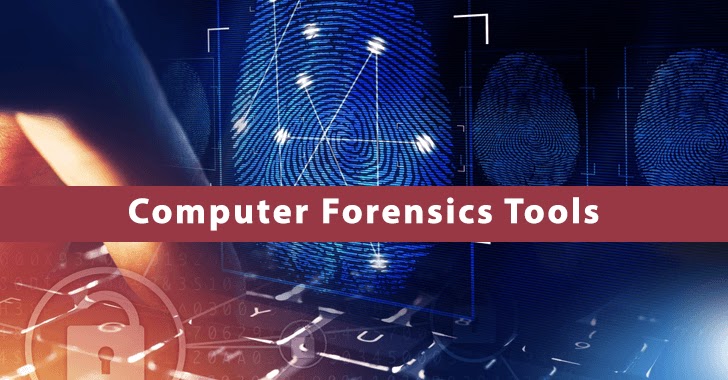Computer Forensics tools are more often used by security industries to test the vulnerabilities in networks and applications by collecting the evidence to find an indicator of compromise and take appropriate mitigation Steps.
Here you can find the Comprehensive Computer Forensics tools list that covers Performing Forensics analysis and responding to incidents in all Environments.
Digitial Forensics analysis includes preservation, collection, Validation, Identification, Analysis, Interpretation, Documentation, and Presentation of digital evidence derived from digital sources for the purpose of facilitating or furthering the reconstruction of events found to be criminal.
Collections of Computer Forensics Tools
- DFIR – The definitive compendium project – Collection of forensic resources for learning and research. Offers lists of certifications, books, blogs, challenges, and more
- dfir.training – Database of forensic resources focused on events, tools, and more
- ForensicArtifacts.com Artifact Repository – Machine-readable knowledge base of forensic artifacts

Free Digital Forensic Tools
- Forensics tools on Wikipedia
- Free computer forensic tools – Comprehensive list of free digital forensic tools
Distributions – Open Source Forensic Tools
- bitscout – LiveCD/LiveUSB for remote forensic acquisition and analysis
- deft – Linux distribution for forensic analysis
- SANS Investigative Forensics Toolkit (sift) – Linux distribution for forensic analysis
Frameworks
- dff – Forensic framework
- IntelMQ – IntelMQ collects and processes security feeds
- Laika BOSS – Laika is an object scanner and intrusion detection system
- PowerForensics – PowerForensics is a framework for live disk forensic analysis
- The Sleuth Kit – Tools for low level forensic analysis
- turbinia – Turbinia is an open-source framework for deploying, managing, and running forensic workloads on cloud platforms
Live Network Forensics Tools
- grr – GRR Rapid Response: remote live forensics for incident response
- Linux Expl0rer – Easy-to-use live forensics toolbox for Linux endpoints written in Python & Flask
- mig – Distributed & real time digital forensics at the speed of the cloud
- osquery – SQL powered operating system analytics
Imaging
- dc3dd – Improved version of dd
- dcfldd – Different improved version of dd (this version has some bugs!, another version is on github adulau/dcfldd)
- FTK Imager – Free imageing tool for windows
- Guymager – Open source version for disk imageing on linux systems
Carving
- bstrings – Improved strings utility
- bulk_extractor – Extracts informations like email adresses, creditscard numbers and histrograms of disk images
- floss – Static analysis tool to automatically deobfuscate strings from malware binaries
- photorec – File carving tool
Memory Forensics Tools
- inVtero.net – High speed memory analysis framework developed in .NET supports all Windows x64, includes code integrity and write support.
- KeeFarce – Extract KeePass passwords from memory
- Rekall – Memory Forensic Framework
- volatility – The memory forensic framework
- VolUtility – Web App for Volatility framework
- BlackLight – Windows/MacOS Computer Forensics tools client supporting hiberfil, pagefile, raw memory analysis.
- DAMM – Differential Analysis of Malware in Memory, built on Volatility.
- evolve – Web interface for the Volatility Memory Forensics Framework.
- FindAES – Find AES encryption keys in memory.
- inVtero.net – High speed memory analysis framework developed in .NET supports all Windows x64, includes code integrity and write support.
- Muninn – A script to automate portions of analysis using Volatility, and create a readable report.
- Rekall – Memory analysis framework, forked from Volatility in 2013.
- TotalRecall – Script based on Volatility for automating various malware analysis tasks.
- VolDiff – Run Volatility on memory images before and after malware execution, and report changes.
- Volatility – Advanced memory forensics framework.
- VolUtility – Web Interface for Volatility Memory Analysis framework.
- WDBGARK – WinDBG Anti-RootKit Extension.
- WinDbg – Live memory inspection and kernel debugging for Windows systems.
Network Forensics Tools
- SiLK Tools – SiLK is a suite of network traffic collection and Computer Forensics tools analysis tools
- Wireshark – The network traffic analysis tool
- NetLytics – Analytics platform to process network data on Spark.
Windows Artifacts
- ArtifactExtractor – Extract common Windows artifacts from source images and VSCs
- FastIR Collector – Collect artifacts on windows
- FRED – Cross-platform microsoft registry hive editor
- LogonTracer – Investigate malicious Windows logon by visualizing and analyzing Windows event log
- MFT-Parsers – Comparison of MFT-Parsers
- MFTExtractor – MFT-Parser
- NTFS journal parser
- NTFS USN Journal parser
- RecuperaBit – Reconstruct and recover NTFS data
- python-ntfs – NTFS analysis
OS X Forensics
Internet Artifacts
- chrome-url-dumper – Dump all locally stored information collected by Chrome
- hindsight – Internet history forensics for Google Chrome/Chromium
Timeline Analysis
- DFTimewolf – Framework for orchestrating Computer Forensics tools collection, processing, and data export using GRR and Rekall
- plaso – Extract timestamps from various files and aggregate them
- timesketch – Collaborative forensic timeline analysis
Disk Image Handling
- aff4 – AFF4 is an alternative, fast file format
- imagemounter – Command line utility and Python package to ease the (un)mounting of forensic disk images
- libewf – Libewf is a library and some tools to access the Expert Witness Compression Format (EWF, E01)
- xmount – Convert between different disk image formats
Decryption
- hashcat – Fast password cracker with GPU support
- John the Ripper – Password cracker
Learn Forensics
- Forensic challanges – Mindmap of forensic challanges
- Training material – Online training material by European Union Agency for Network and Information Security for different topics (e.g. Digital forensics, Network forensics)
Forensic CTFs Tools
There are many relatively new tools available that have been developed in order to recover and dissect the information.



